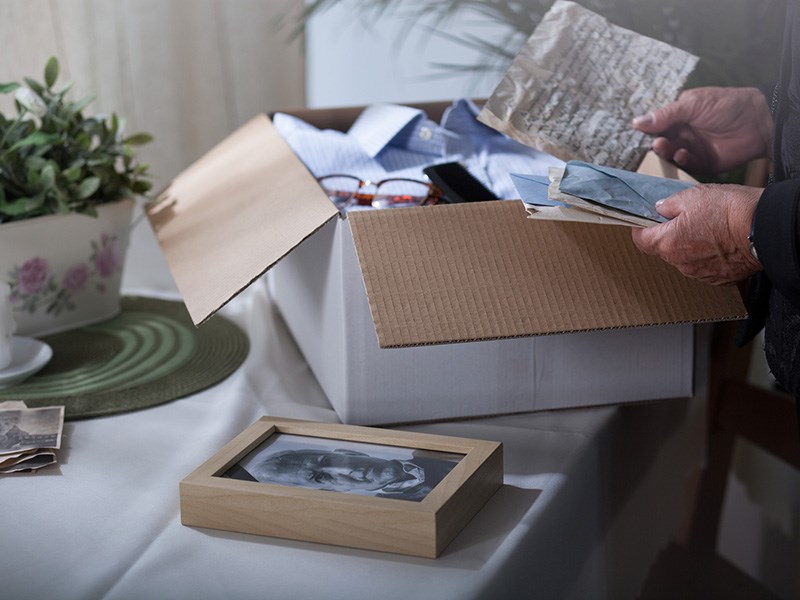Transitioning to a new chapter in life can be overwhelming for many seniors and their families. The longer a person lives in their home, the more belongings they collect. With a little planning and preparation, downsizing can be a liberating and satisfying experience.
The process of downsizing can be challenging both physically and emotionally. This is an especially difficult process if you wait too long to make decisions about your belongings, money, where you want to live and who is going to take care of you. Give yourself plenty of time for this process, because it always takes longer than you predict.
Here are some tips that might make this process a little bit easier, and even enjoyable.
1. Where are you moving? Find out when and where you are moving. This is the first step of a downsizing process because it will determine how much and what you need to downsize. There is a big difference between moving to a smaller home or moving to a retirement complex.
2. Get resourceful. Start collecting the resources you might need for this process, for example, a downsizing expert, realtor, lawyer, movers, handyman, et cetera. Ask them about their expertise, price and references. Be prepared to negotiate. Many companies offer a discount to senior citizens.
3. Schedule the family meeting. Talk to your family about items they might want. Whatever your family chooses, ask them to remove the items from the house, including their childhood books, toys and special projects.
4. Downsize one room at a time. Be prepared with big garbage bags, recycling bags and a few boxes for donation. Start small and remove the garbage first. Second, decide what to donate and to whom. If possible, make your donation delivery every day.
5. Select the furniture you are taking. Keep in mind that wherever you are moving, space will be smaller than your house. Sell the heavy furniture, tools, sports equipment and your car if not needed.
6. Pack only things you like and need. At this time you can start packing your favourite dishes, clothes, pictures and special accessories for your new home. If you’re moving to a retirement home, there is not much you’re going to need.
7. Consider donating your items. There are a few local charities that might need your items. One of them is Grace House (Transition House) in Powell River. For more information about this great charity that helps abused women to transition to safety and a better life, contact Dawn Adaszynski at 604.483.8258.
Why not celebrate this transition to the freedom of a simple and rewarding life with your family and friends. Another idea is to take a trip alone or with your family. I did exactly that. After selling my furniture, china and crystal, I took a trip to Hawaii.
Ranka Burzan owns a professional organizing company based in Powell River and has written several books on reducing clutter and becoming more organized. For information, go to solutionsorganizing.com.



